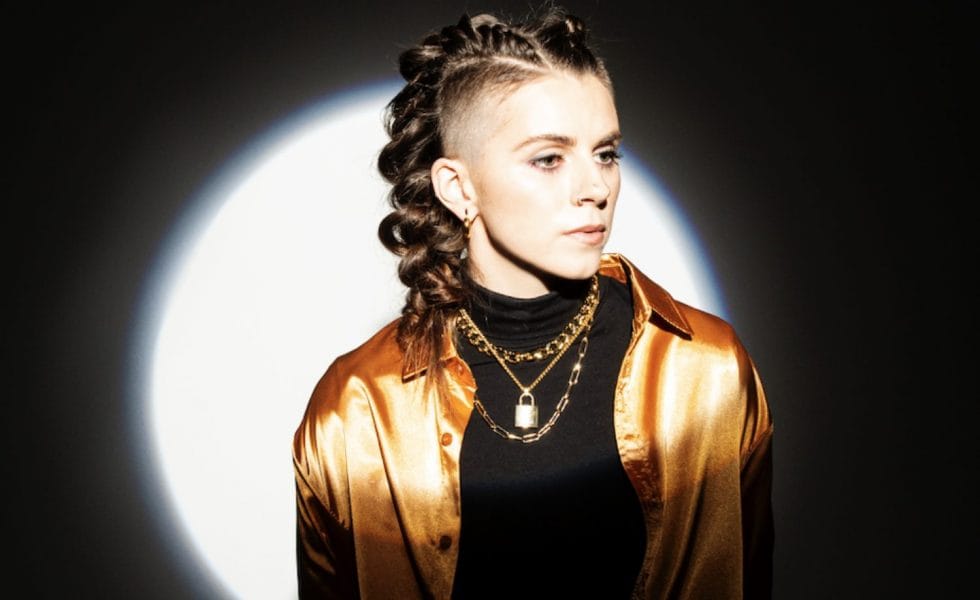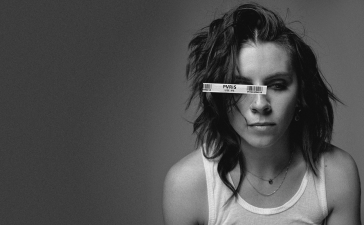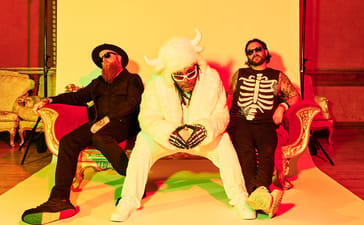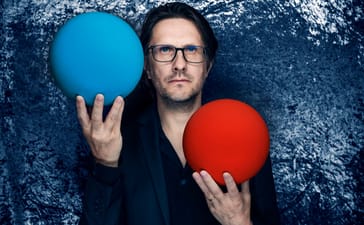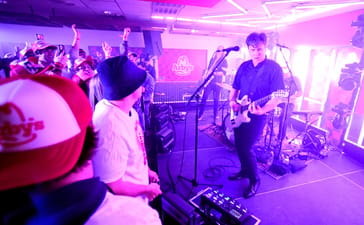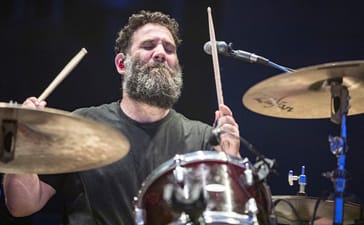PVRIS have never been afraid to push the envelope.
Since their 2014 debut, the Boston natives have revelled in their pop-seared approach to music – something that’s taken centre-stage with their latest album, Use Me. A tumultuous few years preceded the album and for frontwoman Lynn Gunn, it became both an outlet for her struggles and the ultimate symbol of her creative authority. We caught up with Lynn to chat about finding stability in the tension that occupied the path to this record.
You made the decision to delay this album. What was your reasoning behind pushing it back?
I had wanted to release it back in May but our label pushed for us to delay it until July. I then wanted to delay it again for the Black Lives Matter movement. I just felt self-promotion could wait and I didn’t want to take up any extra space or make any extra noise during a really important time. Our whole team was really supportive and on board with it which was great.
PVRIS has always had a pop side, but Use Me really embraces it. Tell us about that change.
It was a pretty natural change, especially working with a different producer and collaborator. I’ve always wanted to find a happy medium. I wanted to find the sweet spot between pushing the envelope and testing the waters as far as certain aspects of production go, but still essentially putting out a song that could be stripped down into anything, whether it be piano or guitar, and just focusing on the crafting of it. I wanted to find fun in abstract ways of producing but also make sure it was sonically satisfying. I wanted to push it enough to introduce something new but leave room for the future and whatever will come after this.
You had a pretty interesting recording process this time around. How’d it go?
It was so much fun! It was a lot of trial and error and going into a lot of blind dates with writers and producers. The main collaborator through and through was JT Daly, who produced the album. He and I worked together a bunch and he helped bring in some other collaborators that brought fun, interesting flavours to what we were already doing. We worked with a bunch of different people, one of them was my friend Sean Van Fleet. He’s such a sweetheart, he’s very dedicated to finding the soul of a song and pulling it out. He was a key collaborator and an awesome person to share this with. A lot of the time you take a gamble but there is a sense of trust you need to have with the people you’re working with, at least for me personally. We also worked with Tommy English, Nate Cyphert, Nate Campany, Amy Allen and then Marshmello on Hallucinations.
In the past, you’ve spoken out about your vocal issues and feeling like you had to learn how to sing again. Did any of that come to a head when working on Use Me?
A little bit, I’d say in some of the earlier songs and the ones from the Hallucinations EP that made it onto the album. I was in the process of trying to rebuild my voice and find the issue, while also trying to work around it and write new music. We had to work with it and find a new way to approach writing melodies. I also had to think about how I wanted to be delivering things vocally. I think halfway through making the album I started working with a new coach that JT had recommended and he really saved things. My voice is better than ever now so whatever comes after Use Me will have a lot more of the vocals that people know PVRIS for. The signature growl.
“In the past, band culture pressure was a lot heavier. Especially with the first album, there was overhanging anxiety to fit in with the culture.”
It feels as though a lot of different experiences, both internal and external, shaped the record.
With Use Me, a lot of it was just reflecting on where I’ve had a hard time setting boundaries, as well as some health issues. Within that, there was a lot of healing and coming to terms with a lot of change that had happened in the last few years. It’s all been intertwined in a sense. It was a hectic time while making the album and before that, navigating those health issues. It was a weird storm for questioning what’s important, what I needed to prioritise in terms of setting boundaries and taking care of myself. I had to step in and stand up for myself. I’ve had a hard time doing that in the past and am still working on it to this day. Everything’s always a work in progress anyway.
You’ve taken the head role this time around. Tell us about the journey to that.
With how our lives were playing out the dynamic just became clear. And with navigating my health issues and trying to take care of myself better, it was just something I had to do to move forward. The boys were really supportive of it, and it’s always been something they’ve encouraged. Whenever we’d do an interview and I wouldn’t talk about the writing process in great detail, they’d always encourage me to own it. So it was just naturally happening over time, but we did have a big talk about it. Again, with how the album was made, it was very on the go and singular, it felt like the best time to step into this next chapter.
You’ve previously spoken about band culture, and the expectations placed on women in this industry. Was it daunting to go against that, and put yourself in this figurehead position?
In the past, band culture pressure was a lot heavier. Especially with the first album, there was overhanging anxiety to fit in with the culture. With Use Me, it naturally shifted and very much became not that. At this point in my life, I need to be truthful. I want to have that peace of mind and do what feels exciting and what feels right and the most authentic. This new album is what that looks like. I can’t control what anyone else thinks about it or says about it. I know this is the best for me and the best for Brian and Alex moving forward. That’s all I know and that’s all I need to know.
Music is in a really interesting place right now where there isn’t as much pressure and focus on what something should be labelled as, genre-wise. It’s becoming fluid in all aspects and this is a great time to roll with that and trust that and be a part of that paradigm shift. I haven’t felt too pressured or worried in this chapter, it’s been relieving. In the end, if I’m in a good place and an inspired headspace and excited about what’s happening, I’ll be in my element and more music will be made. That’s how it needs to continue and this is what’s going to do it.


